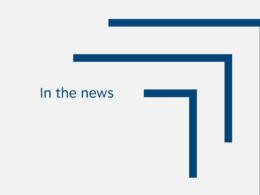
Borrower swaps: a strategic opportunity for community and regional banks
Summary
In today’s competitive lending landscape, community and regional banks face pressure to deliver flexible, fixed-rate financing while managing interest rate exposure. Borrower swaps, financial instruments that allow banks to meet this demand, are gaining relevance. For institutions aiming to enhance client relationships, compete with larger lenders, and generate fee income, borrower swaps offer a powerful solution.
Key takeaways
- Strategic advantage: borrower swaps are essential for regional and community banks seeking to offer fixed-rate solutions, manage their own interest rate risk, and compete with larger lenders.
- Core benefits: swaps allow banks to win more deals, deepen client relationships, and generate valuable fee income.
- Implementation key: success requires strong operational readiness and clear borrower communication to manage risks.
The big picture
As the financial backbone of local communities, regional and community banks serve small businesses, community and civic institutions, farms, and families with personalized service that larger institutions often can’t match. Borrower swaps, often referred to as back-to-back swaps, enhance this model by enabling smaller institutions to offer sophisticated solutions without compromising their core strengths. Swaps help banks:
- Retain and grow commercial relationships
- Offer competitive fixed-rate solutions
- Reinvest profits locally through expanded lending
Swaps are strategic instruments for managing risk, serving clients, and fostering sustainable growth. As the 2026 market emerges, banks that embrace swaps will be better positioned to compete, differentiate, and deliver long-term value.
A strategy gaining traction
Today’s market is defined by shifting sentiment, margin pressure, and rising demand for fixed-rate certainty. While many banks have swap programs, they may be underutilized or inactive. With a favorable yield curve and stable credit conditions, now is the time to re-engage. Swaps offer a way to:
- Win more deals
- Deepen commercial relationships
- Generate non-interest income
- Compete with larger institutions and non-bank lenders
Understanding borrower swaps
Borrower swaps are interest rate derivatives that convert floating-rate loans into fixed-rate obligations. Banks use swaps to hedge exposure or facilitate the borrower’s hedge. This is accomplished through a back-to-back swap, where the bank originates a floating-rate loan and simultaneously offers the borrower a swap to fix their rate. The bank then executes an offsetting swap with a dealer to hedge its exposure, providing fixed-rate certainty, floating-rate asset retention, and up-front fee income. When executed properly, this structure aligns borrower needs with bank risk management and revenue goals.
Risks and considerations
Because swaps carry complexity, banks must evaluate:
- Program readiness (policy, documentation, accounting, credit, processing)
- Reputational risk (clear borrower communication and education is essential)
- Market risk (misaligned loan and swap terms can create exposure)
Setting up a borrower swap program takes coordination, preparation, and training. It can be complex, but with the right expert partner, banks can streamline the process, avoid missteps, and build a program that works well for both the institution and its clients.
Since 2001, Chatham Financial has partnered with banks of all sizes to help launch, run, and grow successful customer back-to-back swap programs. We are the largest and most experienced non-bank provider of borrower swap support to regional and community banks.
Subscribe for weekly market updates.
Disclaimers
Chatham Hedging Advisors, LLC (CHA) is a subsidiary of Chatham Financial Corp. and provides hedge advisory, accounting and execution services related to swap transactions in the United States. CHA is registered with the Commodity Futures Trading Commission (CFTC) as a commodity trading advisor and is a member of the National Futures Association (NFA); however, neither the CFTC nor the NFA have passed upon the merits of participating in any advisory services offered by CHA. For further information, please visit chathamfinancial.com/legal-notices.
25-0094




